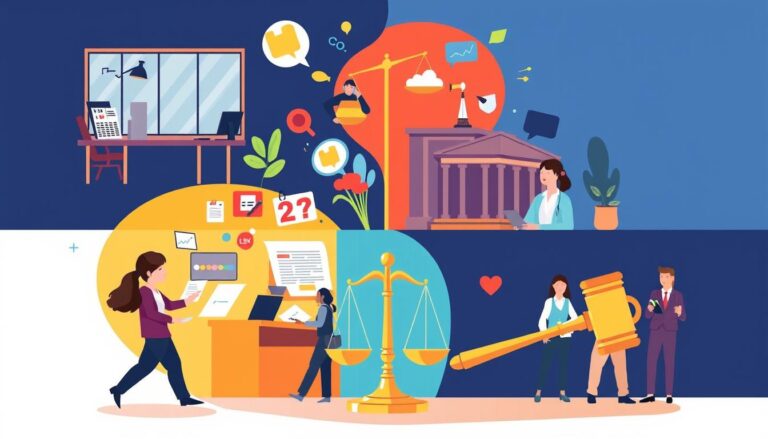Why Effective Communication Skills Are Essential for Legal Professionals
Effective communication is the cornerstone of success in the legal profession. Whether in the courtroom, negotiating a settlement, or advising clients, legal professionals must communicate complex ideas clearly and persuasively. These skills enhance the attorney-client relationship and influence the outcomes of legal cases. In fact, the ability to convey ideas precisely and coherently is often the deciding factor in legal disputes. This article explores why communication skills are essential for legal professionals, with insights from The Maddox Firm, a leading firm in legal practice.
The Role of Communication in Legal Practice
Legal professionals are often tasked with explaining intricate legal concepts to clients who may have little to no understanding of the law. This requires an ability to break down complex terminology and present it in a way that is both accessible and understandable.
Miscommunication or failure to effectively explain a legal issue can lead to confusion, misunderstandings, and even poor decisions that harm the client’s interests. This is where strong communication skills become indispensable.
Lawyers must speak clearly and listen carefully to their clients, fully understanding their concerns and expectations. This two-way communication builds trust, which is vital for a productive lawyer-client relationship.
Additionally, legal professionals must often communicate under pressure. Whether in the courtroom presenting evidence to a judge and jury or negotiating terms in a high-stakes settlement, the pressure to perform can be immense.
Effective communication skills help lawyers maintain composure and clarity even in these high-stress situations. The ability to organize thoughts quickly and present them in a coherent and persuasive manner is key to winning cases and securing favorable outcomes for clients.
This is something that The Maddox Firm places great emphasis on, ensuring that every aspect of communication is handled with care and professionalism.
Persuasion and Negotiation in Legal Cases
In legal, persuasion is often just as important as presenting facts. Whether advocating for a client in court or negotiating with opposing counsel, legal professionals rely heavily on their ability to persuade others.
A well-crafted argument, backed by sound reasoning and delivered effectively, can make all the difference in a case. Lawyers need to understand not just what to say, but how to say it in a way that influences the audience—whether that’s a judge, jury, or opposing party.
Practical communication skills help legal professionals articulate their arguments compellingly, ensuring their message is not lost in technical jargon or a lack of clarity.
Negotiation, another crucial aspect of legal practice, also hinges on communication. Lawyers often find themselves negotiating settlements on behalf of their clients. A successful negotiation is not only about knowing the law but also about understanding the needs and desires of both parties.
Lawyers must be able to communicate clearly, listen actively, and adapt their approach depending on the situation. By using persuasion and negotiation skills effectively, legal professionals can often resolve disputes without the need for costly and time-consuming litigation.
This ability to resolve issues amicably benefits clients and allows legal professionals to manage their caseloads more efficiently.
Impact on Professional Reputation and Client Trust
Effective communication extends beyond the immediate tasks of a case; it plays a significant role in shaping a lawyer’s reputation. Legal professionals who communicate well are more likely to be perceived as trustworthy, competent, and approachable.
This perception is crucial in a profession where client trust is paramount. When clients feel they can easily communicate with their attorney, they are more likely to be satisfied with the service they receive and may even refer others to the firm. Conversely, poor communication can damage a lawyer’s reputation, leading to lost clients and business opportunities.
Furthermore, legal professionals who communicate effectively can manage expectations more clearly. Clients often enter into legal matters with high levels of anxiety and uncertainty.
By providing clear and consistent communication, lawyers can help ease these concerns, setting realistic expectations and keeping clients informed. This approach strengthens the lawyer-client relationship and leads to more positive outcomes, as clients are less likely to be surprised by developments and more likely to trust the attorney’s judgment.
In conclusion, communication skills are not just a secondary asset for legal professionals—they are essential for success. Lawyers must be able to convey complex ideas in simple terms, persuade others, and negotiate effectively while maintaining high professionalism.
Good communication fosters trust, builds stronger client relationships, and enhances a lawyer’s ability to achieve favorable outcomes in cases. From advocating in court to advising clients and negotiating settlements, communicating effectively is indispensable in the legal field.
As emphasized by the professionals at The Maddox Firm, honing these skills can significantly improve both personal and professional growth within the legal profession.







